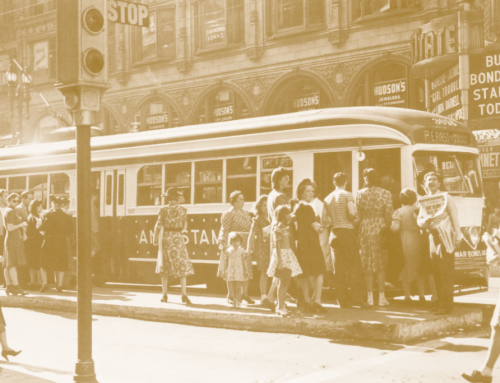UCTC has just turned fifteen; so it seems an appropriate time to assess our accomplishments. Clearly, our most important products have been transportation professionals. We’ve supported over a thousand students, nearly all of them now working for state and local transportation agencies and as transportation specialists in the private sector. We’ve helped educate over a hundred PhDs, many of whom are now transportation faculty members at universities across the US. And we’ve sponsored several dozen conferences, training sessions, and seminars for practicing professionals here in California and beyond.
UCTC has funded nearly 300 faculty research projects over the years. Many of these produced immediate benefits, while others laid the groundwork for substantial long-term gains. Here’s a baker’s dozen examples.
- Professor Donald Shoup invented Parking Cash-Out, in which employers who pay for parking for their workers offer them the option of receiving the same amount in cash or in transit Parking Cash-Out is now written into both state and federal law and has proved cost-effective in providing travel alternatives.
- Professor Amelia Regan and her students developed a method for solving large intermodal fleet-routing problems in rail-maritime In collaboration with the JB Hunt company, they have significantly reduced delays and costs without negatively affecting customer service.
- Professor Anastasia Loukaitou-Sideris’s research on bus-stop crime helped allay fear that new transit lines bring crime into neighborhoods and prompted the Los Angeles County Metropolitan Transportation Authority to allocate over $1 million to retrofit dangerous bus stops.
- Professor Carl Monismith and his students developed new pavement materials and application strategies, including quick- dry pavements, saving highway agencies millions of dollars. Professor John Harvey, who worked with Monismith as a student at Berkeley, is now on the UC Davis faculty experimenting with using rubber tires and recycled materials in pavement.
- Professor Michael McNally is testing the market potential for hybrid electric and fuel-cell He is using a GPS-based vehicle monitoring system, developed in UCTC research, to track vehicle use.
- Professors Robert Cervero, Paul Ong, Evelyn Blumenberg, and Brian Taylor completed a series of studies on reverse commuting and welfare-to-work, showing the diverse transportation requirements of low-income workers and the need for better service Their findings were cited in new federal policies and are being used by a new state coordinating committee.
- Professor Daniel Sperling and his research team carried out a long line of projects on electric and hybrid vehicles, relating vehicle and fuel technology to market studies and organizational The work has led to testing of electric and hybrid cars and buses, as well as of fuel cells for auxiliary power in trucks.
- Professor Kenneth Small’s research on highway financing, pricing, and travel behavior has influenced federal and state decisions about congestion pricing and public-private transportation finance, including for the State Route 91 HOT lane—the first highway congestion pricing experiment in the US.
- Professor Patricia Mokhtarian worked with California state agencies to evaluate their telecommuting programs, and found that the programs increased workforce productivity, reduced energy use and air pollutant emissions, and increased job satisfaction. Her findings led several agencies to make their programs permanent and expand them to additional workers.
- Professor Reginald Golledge developed a real-time GPS data-collection system that can be augmented by speech interface, making the reporting of travel-survey data a simple task for He also developed ways to provide travel information to people with vision impairments.
- Professor Samer Madanat developed methods for incorporating information on real-world performance and risk into transportation infrastructure management systems, making for investments that are more cost-effective with respect to maintenance, rehabilitation, reconstruction, and replacement of pavements and bridges.
- Professor Steven Ritchie created a real-time system for incident detection that has been incorporated into the advanced traffic management system being used by Early detection of incidents is a key way to combat congestion.
- Professor Theodore Cohn’s escalator safety project investigated how people judge—or misjudge—distances to Insights from that study and follow-on research led to improved railroad crossing signals, embedded pavement warning signals, and new warning signals for transit vehicles.
Elizabeth A. Deakin
UCTC Director






